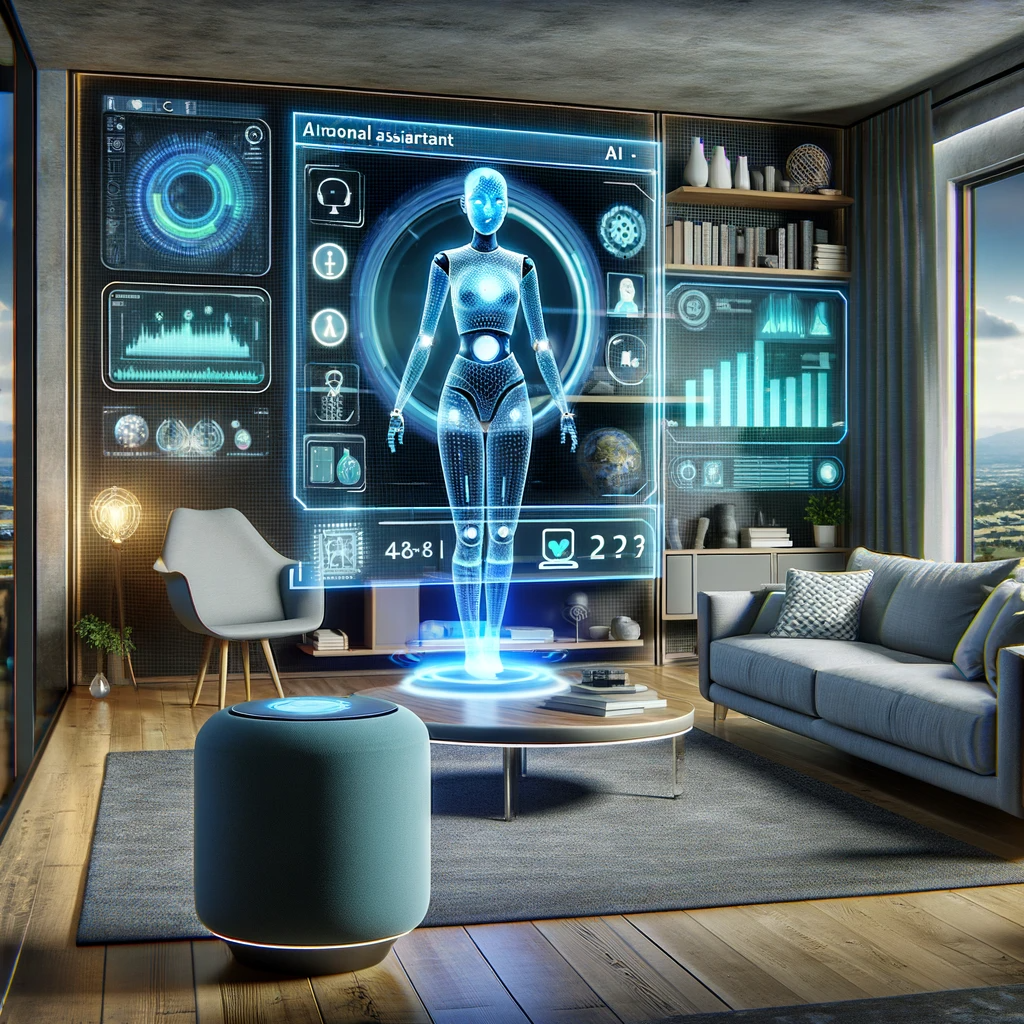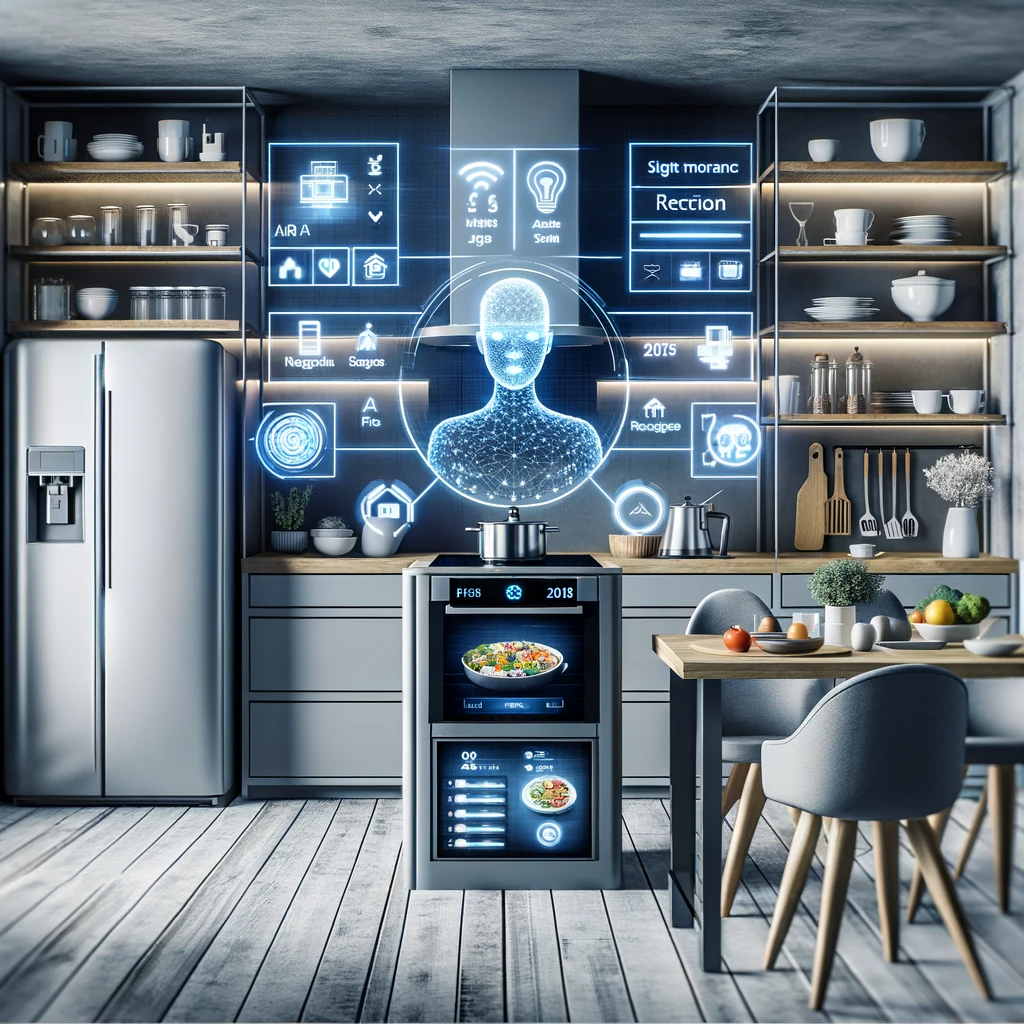In the age of artificial intelligence (AI), technology is rapidly advancing towards making our lives more convenient and efficient. One prominent example is the emergence of AI-driven personal assistants, which have become an integral part of many households. From setting reminders to answering questions, these AI personal assistants have proven their utility. However, as technology evolves, so do their capabilities. This article delves into the fascinating prospect of AI-driven personal assistants evolving into full-fledged home managers, taking on tasks ranging from home automation to energy conservation. We explore the potential, challenges, and implications of this transformative shift in our daily lives.
The Rise of AI Personal Assistants
AI personal assistants, such as Amazon’s Alexa, Google Assistant, and Apple’s Siri, have become familiar voices in our homes. These AI-driven virtual companions are designed to simplify tasks, provide information, and enhance the overall living experience. They have set the stage for the next phase in home automation and management.
The Current Role of AI Personal Assistants
AI personal assistants are already capable of a wide range of tasks:
- Voice Commands: Users can interact with their AI personal assistants using voice commands to set alarms, play music, or get weather updates.
- Smart Home Control: Many AI assistants can integrate with smart home devices, allowing users to control lights, thermostats, and security systems.
- Information Retrieval: These assistants can answer questions, provide real-time news updates, and even offer recipe suggestions.
- Calendar Management: Users can schedule appointments, set reminders, and receive notifications for upcoming events.
However, their current capabilities only scratch the surface of their potential.

The Evolution Towards Home Management
1. Automation and Routine Tasks
AI personal assistants are poised to take automation to the next level. In the future, they may manage routine tasks like:
- Grocery Shopping: Based on consumption patterns and user preferences, AI assistants could create shopping lists, order groceries, and schedule deliveries.
- Cleaning: Robotic vacuum cleaners and AI assistants could collaborate to create efficient cleaning schedules.
- Maintenance: AI assistants may monitor appliances and systems for issues, scheduling repairs or replacements when necessary.
2. Energy Conservation and Sustainability
One of the most promising aspects of AI-driven home management is its potential to contribute to energy conservation and sustainability:
- Energy Efficiency: AI can analyze energy usage patterns and recommend adjustments to optimize efficiency. For example, it can adjust thermostat settings based on occupancy patterns or suggest energy-efficient lighting options.
- Renewable Energy Integration: AI could manage the integration of renewable energy sources, such as solar panels or wind turbines, by optimizing their usage and storage.
- Waste Reduction: AI may help reduce household waste by optimizing recycling and composting processes.
3. Security and Safety
AI personal assistants are well-suited to enhance home security and safety:
- Surveillance: Integrated with smart cameras and sensors, AI assistants can provide real-time surveillance and alert homeowners to suspicious activities.
- Emergency Response: In case of accidents or intrusions, AI assistants could automatically alert emergency services and provide crucial information.
- Fire and Water Damage Prevention: By monitoring smoke detectors and water sensors, AI assistants can minimize damage in the event of fires or leaks.
Challenges and Considerations
While the potential of AI-driven home management is exciting, several challenges and considerations must be addressed:
- Privacy Concerns: As AI systems become more integrated into our homes, concerns about data privacy and security must be carefully managed.
- Complexity: Integrating various smart devices and systems into a cohesive AI-driven ecosystem can be complex and may require standardized protocols.
- Affordability: Making advanced AI home management accessible to a wide range of households is essential to its widespread adoption.
- Energy Consumption: Ironically, AI-powered home management systems must themselves be energy-efficient to avoid increasing overall consumption.

The Future of AI-Driven Home Management
As AI personal assistants continue to evolve, they have the potential to become indispensable home managers, streamlining daily routines, conserving resources, and enhancing overall quality of life. This evolution represents a significant step towards more sustainable, efficient, and convenient living spaces.
AI-driven home managers could usher in an era where our homes are not just places of residence but responsive and adaptive environments that cater to our needs and preferences. From optimizing energy usage to ensuring safety and security, these intelligent systems have the potential to redefine how we interact with our living spaces.
In conclusion, the fusion of AI and home management represents a compelling vision for the future of domestic life. While challenges exist, the promise of more efficient and sustainable homes guided by AI-driven personal assistants is an exciting prospect that continues to unfold before us. The path to fully realized AI home managers may be long, but it is a journey that holds the potential to revolutionize the way we live and interact with our surroundings.
